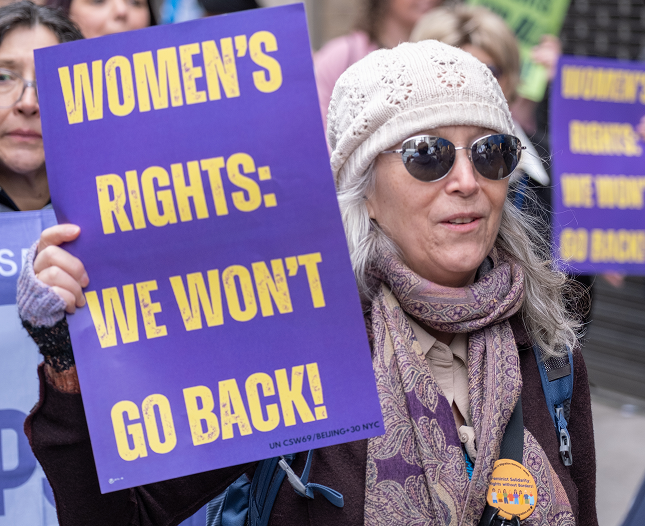In 2025, the Gender Justice Programme aims to strengthen gender-transformative action by rolling out the revised ACT Gender Justice Policy, accompanied by global and regional capacity strengthening and an implementation plan approved by the Governing Board. The programme will mobilise members to align programmatic actions with the Gender Justice Programme, pursue joint resource mobilisation, and build strategic funding partnerships to advance concrete political, legal, and social change.
ACT will continue to integrate a gender and power lens into intersecting programme areas, enhancing collaboration with other programmes such as Climate Justice towards COP30 in Brazil, and supporting joint initiatives on gender, peacebuilding, and adaptation advocacy. The programme will also strengthen the evidence base for gender justice work by producing new research and publications on Sexual and Reproductive Health Rights (SRHR), and by amplifying learnings from diverse regional contexts to inform advocacy and programming.
Efforts will focus on building the capacity of faith leaders, theological actors, and technical staff through strategic accompaniment, technical briefs, and co-produced theological reflections to advance gender justice across faith spaces.
ACT will sustain and deepen its global advocacy by ensuring strategic participation in key UN policy spaces such as CSW, CPD, CEDAW, and the Human Rights Council, while building partnerships with faith and rights-based actors to counter backlashes and advance gender justice, including SRHR and LGBTQI+ rights, at global, regional, and national levels.
